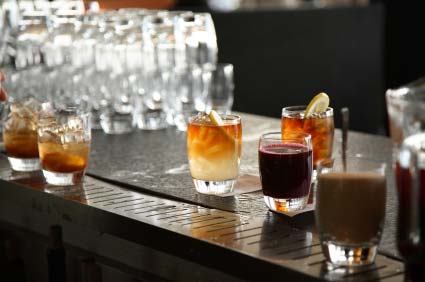Recent action by the Texas Alcoholic Beverage Commission (TABC) has led to outrage on social media sites and planned legal action by a number of craft beer establishments in the state. The controversy arose over the sale of crowlers, 32-ounce cans filled and seamed on site by retailers of craft beer products. While hand-sealed glass containers, also known as growlers, are legal in Texas, the TABC has deemed that the machine-sealed crowlers are in violation of Texas regulations. Seven establishments received warnings that they could lose their TABC permit; of those, three are located in the Houston area.
Canned Beer on Trial
Traditional glass growlers have been a preferred way to transport craft beer from brewery to home for generations. These large glass bottles typically hold between 32 and 64 ounces and are reusable, making them a cost-effective choice for consumers and purveyors alike. By contrast, crowlers are a relatively new technology that has gained in popularity in recent years. These 32-ounce cans can be filled and sealed through the use of a relatively inexpensive machine. Crowlers can be recycled and are preferred by many companies and consumers. Unfortunately, the TABC views crowlers as a canned product and maintains prohibitions against illegal canning. Only breweries with a license specifically for manufacturing are allowed to can beer in the state of Texas.
Taking on the TABC
The most visible company in this controversy is Cuvee Coffee Bar in Austin, which has announced its intention to protest the law. Cuvee employees continued to serve crowlers to customers even after repeated warnings from the TABC. This civil disobedience finally resulted in the seizure of the canning equipment by TABC officials and the issuance of an administrative violation to the owners. Cuvee is expected to contest this violation and to lobby for a change in the laws currently in place.
A Distinction Without a Difference
Craft breweries and pubs arguing for a change in the current law note that there is fundamentally no difference between the beer sold in glass growlers and those served in aluminum crowlers. In fact, the beer sold in crowlers may stay fresher longer thanks to the limited amount of oxygen that reaches the contents of these cans. Restricting one type of container while allowing another has led to a certain amount of confusion within the brewpub industry and has generated accusations that TABC regulations are antiquated and need overall reform.
Companies at Risk
Breweries, brewpubs and bars that violated the crowler ban may be at risk of losing their Texas beer license if they continue to sell these containers. The seizure of the Cuvee Coffee Bar crowler equipment has also had a chilling effect on the number of businesses willing to violate TABC regulations on behalf of their customers. While the manufacturer is offering to buy back the crowler sealing and packaging machines they sold to Texas establishments, the loss in potential revenues for this popular product cannot be easily recouped by most brewpubs and breweries.
More Legal Challenges to Come
Craft beer companies are also expected to challenge the TABC prohibition on selling to-go beer directly from breweries. Past attempts to overturn this part of Texas law have been met with implacable opposition from large beer manufacturers and wholesalers due to the added competition that these small-scale breweries would pose to their sales. Despite this opposition, however, several pubs have indicated that they intend to pursue this challenge to current TABC regulations in the upcoming year.
For most bar owners, maintaining a Texas liquor license and remaining in compliance with all TABC rules and regulations is critical to ongoing success and profitability in the competitive marketplace. Working with a firm that specializes in helping Houston businesses manage the application process for their TABC licenses can provide added guidance in navigating the current rules applicable to drinking establishments in the state of Texas.

